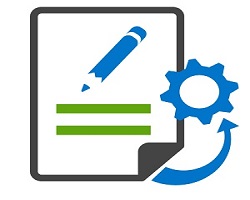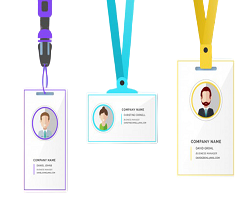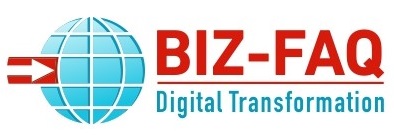Digital Transformation
Consultants and Vendors
in
Process Industries
Getting it Right the First time!
Keeping Ahead and Out of Trouble
with
The Right Technology Choices

Find an Expert

Check a Vendor

Post a Query

Join for Access

Industry Digital Progress
The processing Industry in this analysis includes chemicals, and other materials processing such as minerals and metals but excludes food and textiles which are addressed under agribusiness and textiles respectively. These industries, of which Chemicals generates US$3.9 trillion in sales and employs around 20 million globally, have been slow to digitalize with more than half lacking a digital roadmap or strategy, and three quarters of them focusing primarily on operational transformation with an IT and data orientation rather than strategic (Deloitte Global 2016 Global Digital Chemistry Survey). Even in operations alone, according to Mckinsey, a consultant, the contribution to profits can be substantial. Some companies have increased outputs by 10 to 30% while some others have reduced energy consumption by over 26%. Yet there is much more yet to be gained from improved customer experience and new business models that digital transformation can offer. One key impediment to digitalization in this rather mature and concentrated industry, is an aging and non-digital workforce and the need for new talent that better embraces the digital workplace as in some of its smaller and more entrepreneurial companies. Overall we rate the digital maturity of the processing industry at around 57%.
Industry News & Views
Take a look what we are offering to you
Case Studies
Digital Transformation in the Processing Industries - CASE STUDIES
 Westlake Chemical, headquartered in Houston, TX, is a vertically integrated manufacturer and marketer of basic chemicals, vinyls, polymers, and fabricated building products. It is also the largest producer of LDPE in North America and sells this product to external customers as the final product in pellet form. .
Westlake Chemical, headquartered in Houston, TX, is a vertically integrated manufacturer and marketer of basic chemicals, vinyls, polymers, and fabricated building products. It is also the largest producer of LDPE in North America and sells this product to external customers as the final product in pellet form. .
The Challenge
Scheduling for the Westlake Chemical's Longview, TX, plants was manual, tedious and time-consuming and relied primarily on fragmented spreadsheets. This reduced the flexibility in handling price fluctuations, shutdowns or raw material constraints and made it difficult and time consuming to track and fix errors which propagated through the entire system. It took from four to six hours per plant to create schedules and did not allow any real time tracking of inventory level or accurate prediction of delivery for customer orders, especially change orders, or proper forecasting. This manual approach also resulted in a lack of uniformity in scheduling processes between the spreadsheet based Longview plants, which had been acquired from Eastman Chemicals and the Lake Charles, LA, facility which was more automated.
The Input
The legacy scheduling system at the Lake Charles plant had been originally provided by AspenTech, a leading supplier of software that optimizes process manufacturing — for energy, chemicals, engineering and construction, and other industries that manufacture and produce products from a chemical process. Westlake now decided to install a similar scheduling system from Aspen-Tech at Longview.
Output
Aspen Plant Scheduler was implemented for the three Longview, TX, plants together with training for the personnel for improved user acceptance. This enabled Longview plants to now make changes to the schedule and view inventory more easily and better predict deliveries, especially for change orders. The success at long view, led Westlake management to now replicate the Longview model at Lake Charles and replace the legacy AspenTech model with the updated one. The entire deployment took only two months for both the plants as a result of the standardized capabilities and interfaces of the Aspen-Tech systems, which allowed data standardization for flows to and from the SAP.
Outcome
The scheduler can assess the impact of product changeovers and downtime, as well as highlight delivery date violations, allowing customer service to negotiate new delivery dates with customers. Westlake Chemical achieved their scheduling goals of improving on-time shipments, better inventory management, more efficient product scheduling, and clearer insights into orders and forecasts thanks to
Aspen Plant Scheduler. Notably, the time to prepare a 90 day schedule was reduced from 4-6 hours to a fews minutes vastly improving customer response time.
Source: Aspen Tech
Have a Burning Question?
Chances are someone has the answer! We invite you to post your question in our Q&A forum, where you can Categorize your question and tag it to one or more of the Digital Transformation related topics and apps.While we do not guarantee that another member will answer it in time for you, chances are good that one or more of us will.

 The Yield is an Australian agricultural technology company on a mission to transform food and farming practices by building secure, scalable digital technology to sense, analyse and predict on-farm growing conditions, and then deliver information in a usable format to help increase yield, reduce waste, mitigate the risk and cost associated with soil and weather and inputs. Partnering with Microsoft (Azure) and Bosch, Yield has received several innovation awards from Government and International organizations.
The Yield is an Australian agricultural technology company on a mission to transform food and farming practices by building secure, scalable digital technology to sense, analyse and predict on-farm growing conditions, and then deliver information in a usable format to help increase yield, reduce waste, mitigate the risk and cost associated with soil and weather and inputs. Partnering with Microsoft (Azure) and Bosch, Yield has received several innovation awards from Government and International organizations.  Key facts
Key facts